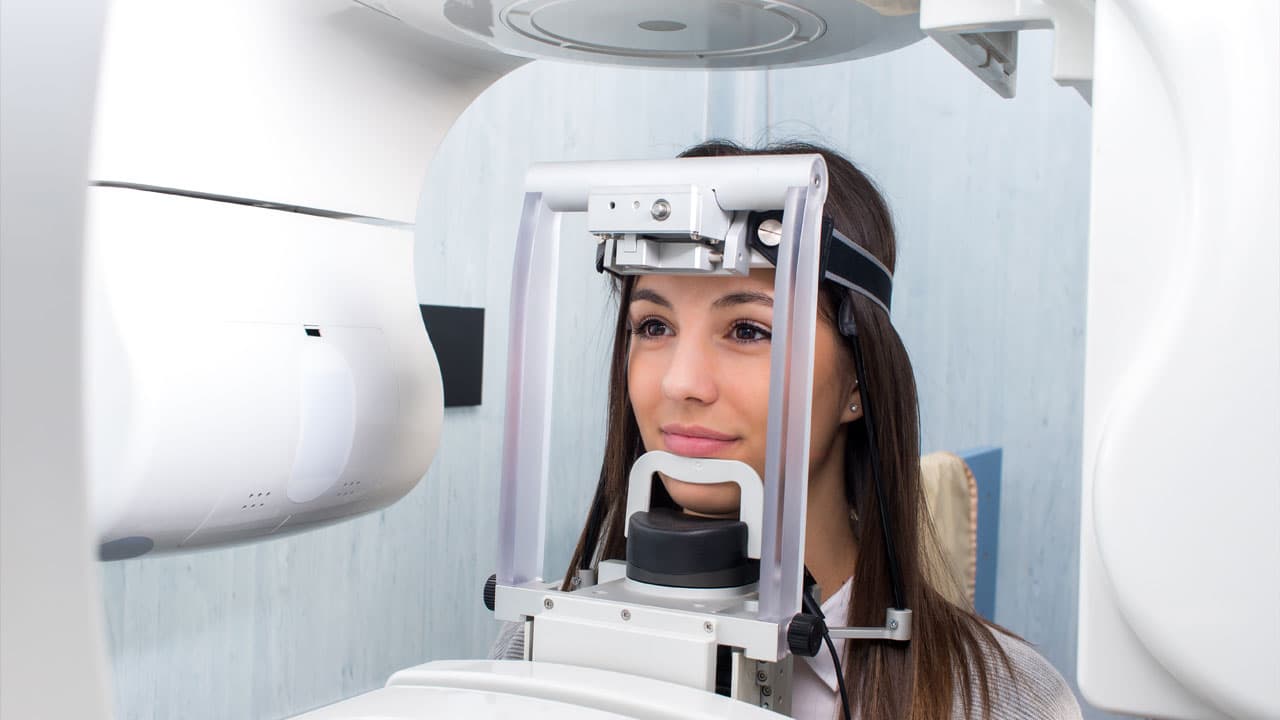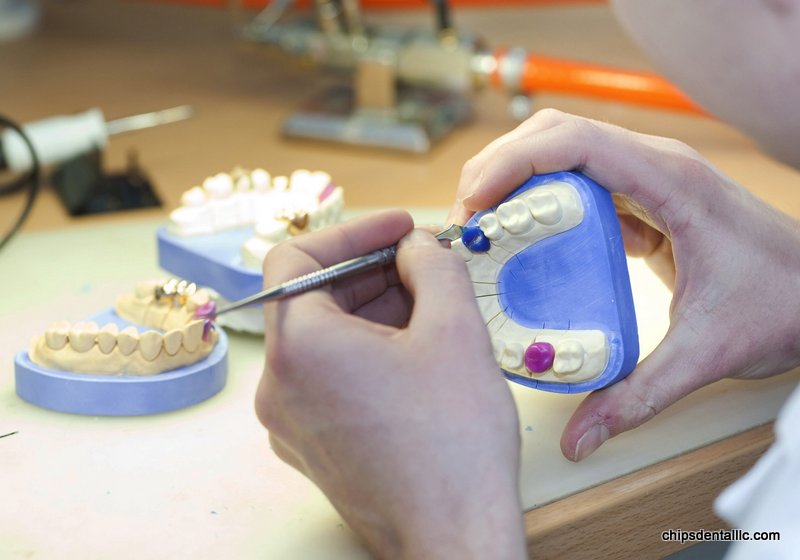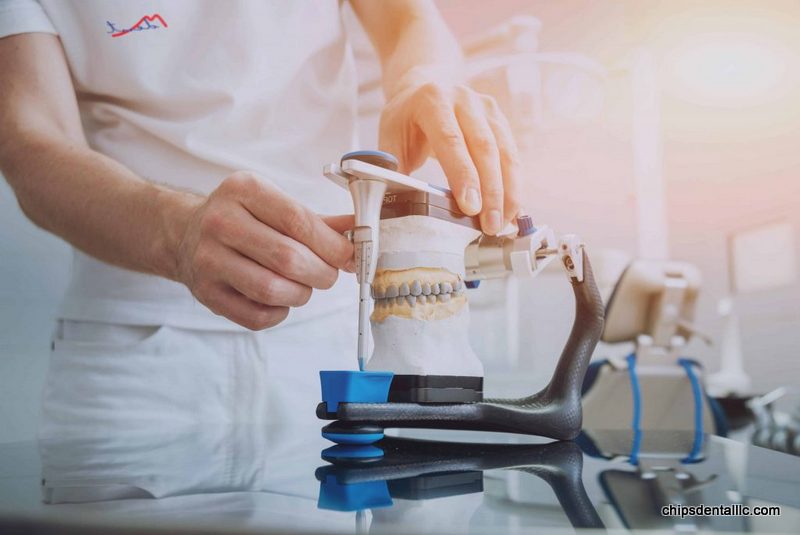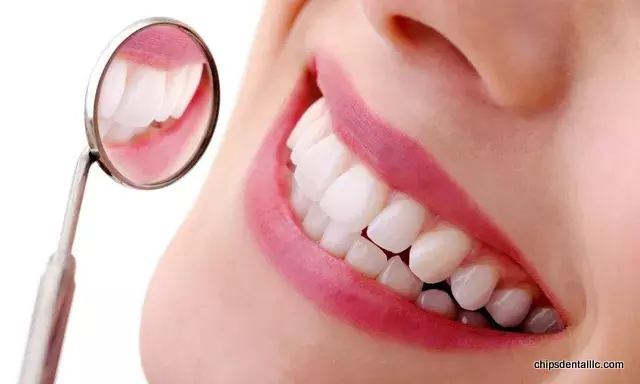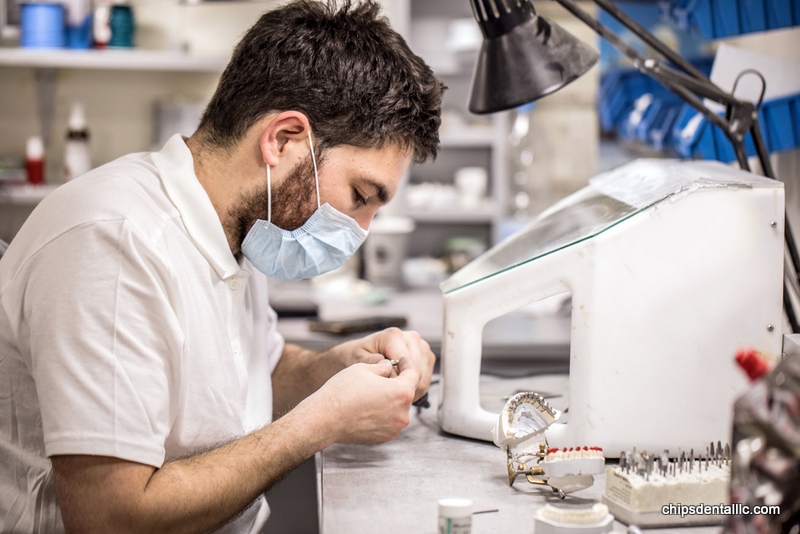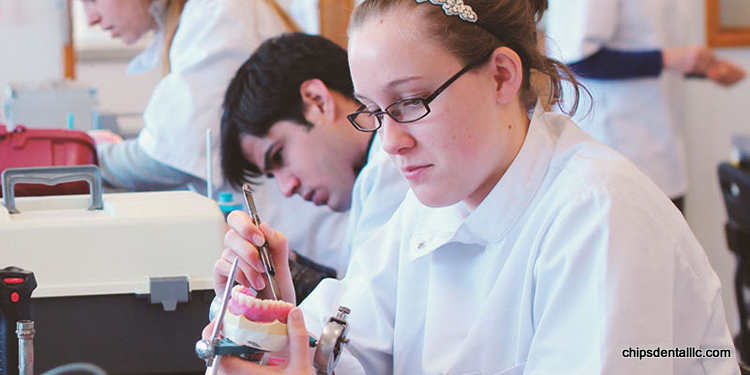The latest dental technology includes advancements like digital impressions, 3D printing, and AI diagnostics. Laser dentistry and tele dentistry are also gaining prominence in modern dental care.
Dentistry has long embraced technological advances to improve patient care and outcomes. Today, cutting-edge innovations are revolutionizing the way dentists diagnose, treat, and manage latest dental health. Digital impressions and 3D printing are streamlining the creation of dental fixtures, eliminating the discomfort of traditional molds.
Lasers offer precise and less invasive options for a variety of procedures, reducing recovery times and improving patient comfort. Artificial Intelligence (AI) is emerging as a diagnostic tool, helping identify patterns and predict latest dental issues before they escalate. Tele dentistry extends services to remote areas, ensuring dental care accessibility. Such advancements in dental technology not only enhance clinical accuracy but also ensure a more pleasant experience for patients. These state-of-the-art tools and methods underscore the dental industry’s commitment to innovation and patient-centered care.
The Revolution Of Dental Technology
Imagine a world where latest dental visits are quick, pain-free, and exude precision. This is not a dream. The landscape of latest dental care is transforming. Smart technology now leads the way. Digital tools and cutting-edge methods redefine oral health. They promise a future filled with innovation and ease for both patients and practitioners.
From Past To Present
Dental technology has come a long way. It evolved from simple tooth extractions with rudimentary tools to digital smile design. Change is constant in dentistry. Traditional methods make way for advanced techniques. These upgrades enhance patient experience and treatment outcomes.
Key Milestones In Dental Innovations
- Intraoral Cameras: Patients see what the dentist sees.
- 3D Printing: Custom dental products in hours, not days.
- Digital Impressions: Goodbye to uncomfortable molds.
- Laser Dentistry: Precision treatments with less pain.
- Telementry: Remote monitoring for consistent care.
- Artificial Intelligence: Smart diagnostics and treatment planning.

Credit: whittierdentaloffice.com
Smart Toothbrushes And Oral Hygiene
Smart Toothbrushes are the cutting-edge wonders in latest dental care. They use technology to help people clean their teeth better. Imagine a toothbrush that tells you if you’re brushing right. It’s cool, right? These brushes are making oral hygiene fun and effective.
Integration With Smartphone Apps
Smart toothbrushes link with apps on your phone. This allows you to track your brushing habits over time. The app can show:
- How long you brush
- Which areas need more attention
- Reminders to replace your brush head
By using these apps, taking care of your teeth becomes a game. You can earn points for good habits, and see how well you’re doing.
Real-time Feedback On Brushing Techniques
With sensors built in, these toothbrushes give feedback as you brush. They tell you if you’re:
- Brushing too hard which can hurt your gums
- Missing spots so every tooth gets clean
- Brushing long enough in each area of your mouth
The real-time feedback helps fix your mistakes right away. This means cleaner teeth every day. Kids love them too, because it’s like having a coach helping them brush.
3d Printing In Dentistry
The realm of latest dental care is embracing a revolutionary tool: 3D printing. This cutting-edge technology is transforming how dentists approach oral healthcare. It brings speed, precision, and customization to a level never seen before. Let’s dive into how 3D printing is reshaping dentistry and vastly improving patient experiences.
Customized Dental Implants
3D printing allows for tailor-made dental implants with a perfect fit. These personalized implants integrate better with a patient’s oral structure. Hence, they greatly reduce discomfort and healing time. Here’s how customization is making a difference:
- Precise fit: Each implant matches the patient’s specific dental contours.
- Improved functionality: Custom implants feel more natural and enhance chewing ability.
Innovations In Prosthetics
Prosthetics now come alive with 3D printing. Dentures and crowns are crafted faster and more accurately. We see significant improvements in comfort and aesthetics, benefiting patients in the following ways:
| Prosthetic Type | Benefits of 3D Printing |
|---|---|
| Dentures | Better fit, lighter materials, and quick production. |
| Crowns | Long-lasting wear, natural look, seamless integration. |
Innovations In Orthodontics
The orthodontic field has made leaps with 3D printing. Custom braces and aligners are now commonplace. The technology ensures a unique treatment plan for every patient. It results in the following advantages:
- Faster creation of dental aligners and braces.
- Exceptional comfort due to precise customization.
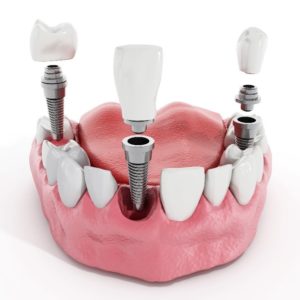
Credit: www.docronan.com
Digital Impressions And Intraoral Scanners
The latest dental field is evolving rapidly, with digital impressions and intraoral scanners at the forefront of innovation. These high-tech tools are transforming dental practices, offering a leap in accuracy and comfort for patients. Not only do they enhance the experience, but they also significantly improve the efficiency of dental procedures.
Accuracy And Comfort For The Patient
Precision is paramount in latest dental care, and intraoral scanners deliver just that. The technology captures clear, detailed images of a patient’s mouth. This process is non-invasive, quick, and comfortable. Traditional impression materials that can cause gagging are no longer necessary. Digital technology ensures a pleasant visit with reliable results.
- Better fit for crowns and bridges
- Less time in the dentist’s chair
- No unpleasant taste or discomfort
Streamlining The Dental Molding Process
The shift to digital has redefined the molding process in dentistry. Intraoral scanners allow dentists to create accurate molds with ease and speed. This table highlights the improvements:
| Traditional Molding | Digital Molding |
|---|---|
| Time-consuming | Quick |
| Requires physical storage | Stored digitally |
| Manual creation of models | Automated model creation |
Each session now requires fewer steps and minimal manual intervention. Dentists can send digital molds directly to labs. This results in quicker turnaround times for prosthetics and orthodontics. Enhanced digital capabilities streamline the entire dental molding process.
Laser Technology For Painless Procedures
The world of dentistry is evolving, and laser technology stands at the forefront of this transformation. Gone are the days of dreaded latest dental drills and the anxiety they evoke. Laser technology in dentistry brings with it the promise of painless procedures, changing the way patients experience dental care.
Applications In Gum Surgery
Gum surgery has been revolutionized by the advent of laser technology. Traditional methods can be invasive and painful, but lasers offer a minimally invasive alternative.
- Treating gum disease: Lasers target infected areas with precision, promoting better healing.
- Reshaping gums: For those with uneven gums, lasers provide a way to contour them without pain.
- Reducing gum pockets: Lasers help in reducing deep pockets that form due to gum disease.
Benefits In Cavity Treatment
When it comes to treating cavities, latest dental lasers are a game-changer. Their accuracy ensures that only the decayed tissue is removed, sparing the healthy parts of the tooth.
| Traditional Drilling | Laser Treatment |
|---|---|
| Often requires anesthesia | Seldom needs anesthesia |
| May cause cracks in teeth | Preserves more of the tooth |
| Can be uncomfortable | Offers a comfortable experience |
Augmented Reality In Dental Education
Augmented Reality in Dental Education is transforming how future dentists learn. It mixes real-world views with virtual graphics. Students get to practice without risk. Realistic simulations improve their skills. This is exciting news in dental technology!
Enhanced Learning For Dental Students
Augmented reality (AR) creates an interactive learning environment. Dental students experience real-life scenarios virtually. Here’s what’s exciting about AR in dental education:
- 3D Teeth Models: Students can see and work on teeth from every angle.
- Procedure Simulations: Learners perform virtual procedures, gaining confidence.
- Instant Feedback: AR provides immediate guidance, helping students learn faster.
- Collaborative Learning: Classmates and teachers share virtual experiences, enhancing their knowledge together.
Virtual Reality For Patient Awareness
Dentists also use AR to educate patients. It helps explain treatments clearly. Here’s what it does:
- Visualized Procedures: Patients see their own dental procedures beforehand.
- Better Understanding: AR demonstrates the benefits and steps of treatments.
- Reduced Anxiety: Knowing what to expect calms nervous patients.
- Engaged Decision-Making: Patients make informed choices about their oral health.
Teledentistry And Remote Consultations
Tele dentistry and Remote Consultations are transforming how we access dental services. This cutting-edge approach allows patients to receive dental advice without having to visit a clinic. By using digital communication tools, tele dentistry is making dental care more accessible, efficient, and convenient.
Access To Dental Care In Rural Areas
For those living far from dental offices, tele dentistry is a game-changer. Rural communities often face challenges in accessing regular dental care. Tele dentistry bridges this gap by:
- Eliminating long travel times for check-ups and consultations.
- Providing easy access to dental professionals without the need for physical presence.
- Expanding the reach of specialized dental services to underserved areas.
Advancements In Remote Diagnosis
Remote diagnosis has leaped forward thanks to tele dentistry. Tools like high-resolution images and video conferencing enable dentists to make accurate assessments. Advancements include:
| Advancement | Benefit |
|---|---|
| Live Video Consultations | Real-time interaction and visual examination. |
| Secure Image Sharing | Send and analyze dental images for prompt advice. |
| AI Diagnostics | Artificial intelligence aids in identifying dental issues. |
These advancements not only streamline the diagnostic process but also enhance accuracy and speed in providing care.
Ai And Machine Learning In Diagnostics
Artificial Intelligence (AI) and Machine Learning (ML) are revolutionizing every aspect of our lives, and dental care is no exception. These technologies are transforming diagnostics in dentistry, leading to faster, more accurate treatments, and a leap in patient care standards.
Predictive Analytics For Preventative Care
Predictive analytics employs AI to foresee dental issues before they escalate. This tech crunches vast data sets to identify patterns that might hint at future problems.
- Early Decay Detection: Algorithms analyze past dental records to predict susceptibility to cavities.
- Risk Assessment: AI evaluates factors such as diet, genetics, and hygiene to customize preventative strategies for each patient.
- Tailored Care Plans: Dentists receive data-driven recommendations, ensuring a proactive approach to dental health.
Improving The Accuracy Of X-ray Analysis
Machine Learning models are now adept at scrutinizing dental X-rays with remarkable precision. This marks a significant advance in early diagnosis and treatment planning.
| Conventional Analysis | AI-enhanced Analysis |
|---|---|
| Subject to human error | Consistency: Uniform interpretation |
| Time-consuming | Speed: Instant results |
| May miss subtle signs | Accuracy: Detects minute anomalies |
X-ray analysis with AI not only speeds up diagnosis but also enhances the detection of diseases such as periodontitis and dental caries at their onset.
The Future Horizon Of Dental Tech
Dental technology is advancing at an incredible pace. It’s ushering in a new era where comfort, efficiency, and precision are not just possible but expected. From the chair at your local dentist to the research labs shaping the future of oral health, new technologies promise to transform the landscape of dental care. Let’s explore the exciting emerging trends on the dental horizon.
Emerging Trends To Watch
- 3D Printing: Advances in 3D printing allow dentists to create precise dental implants, crowns, and bridges quickly.
- Artificial Intelligence: AI helps dentists in diagnosis and treatment planning, improving accuracy.
- Teledentistry: Remote consultations and follow-ups are becoming mainstream, saving time for both patients and providers.
- Smart Toothbrushes: These devices provide data on brushing habits and oral health, contributing to preventative care.
- Regenerative Dentistry: This cutting-edge field uses stem cells to repair damaged teeth and tissues, aiming to make fillings and dentures things of the past.
Potential Impact On Patient Care Quality
The latest dental technologies show promising potential to enhance patient care quality significantly. Here’s how:
| Technology | Benefits |
|---|---|
| 3D Printing | Reduces waiting times for prosthetics; enhances fit and comfort. |
| AI Diagnostics | Improves detection of issues; reduces diagnostic errors. |
| Teledentistry | Makes dental care accessible; cuts down on unnecessary visits. |
| Smart Toothbrushes | Encourages better oral hygiene habits; offers personalized feedback. |
| Regenerative Dentistry | Potential to naturally restore damaged teeth; reduces invasive procedures. |

Credit: southgablesdental.com
Frequently Asked Questions On What Is The Latest Dental Technology
What New Technologies Are Revolutionizing Dentistry?
Recent dental technology advancements include 3D printing for restorations, AI for diagnosis and treatment planning, and enhanced imaging methods like digital scans and CBCT for precise results. These technologies streamline dental procedures, making them faster and more accurate.
How Is Ai Impacting Dental Care?
AI in dental care provides improved diagnostic accuracy, treatment planning, and patient outcomes. It identifies patterns in data for early disease detection and offers personalized treatment recommendations, reducing the chances of human error and enhancing overall dental health maintenance.
Are Lasers Used In Modern Dental Treatments?
Yes, laser technology is used in various dental treatments, including cavity removal, teeth whitening, and gum reshaping. Lasers offer precision, reduced pain, and faster healing times, making dental procedures more efficient and comfortable for patients.
What’s The Latest In Dental Implant Technology?
The latest in dental implant technology involves using mini-implants and 3D printing for custom implants. These advances allow for less invasive procedures, quicker recovery, improved fit and placement accuracy, and better integration with the patient’s bone structure.
Conclusion
Embracing the latest dental technologies can revolutionize your oral health. Advances like 3D printing and tele dentistry offer unparalleled precision and convenience. Stay informed and choose a dentist committed to innovation. Your smile deserves the pinnacle of modern dental care. Prioritize your teeth; embrace the future now.
